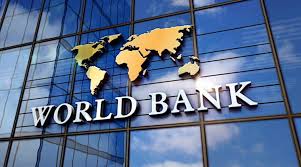The World Bank has projected that Ghana’s per capita income could triple by 2050 if the government implements ambitious reforms to boost productivity, improve infrastructure, and strengthen human capital.
In its 2025 Policy Notes: Transforming Ghana in a Generation, the Bank stated that maintaining consistent annual growth above 6.5 percent would enable the country to withstand demographic pressures and declining natural resource revenues, while positioning itself among the strongest performers in the lower-middle-income group.
By contrast, a moderate reform path would result in average growth of about 5.5 percent. The Bank stressed that reforms should prioritize raising productivity in non-resource sectors, scaling up investment, and improving education and skills to create a more dynamic workforce.
The report further emphasized that increasing female labor force participation, improving governance, and undertaking institutional reforms are critical for sustained progress.
Without such bold measures, the World Bank cautioned, Ghana risks stagnating, with growth potentially slowing to 3.8 percent in the next 15 years delaying the attainment of upper-middle-income status until well after 2050.



















